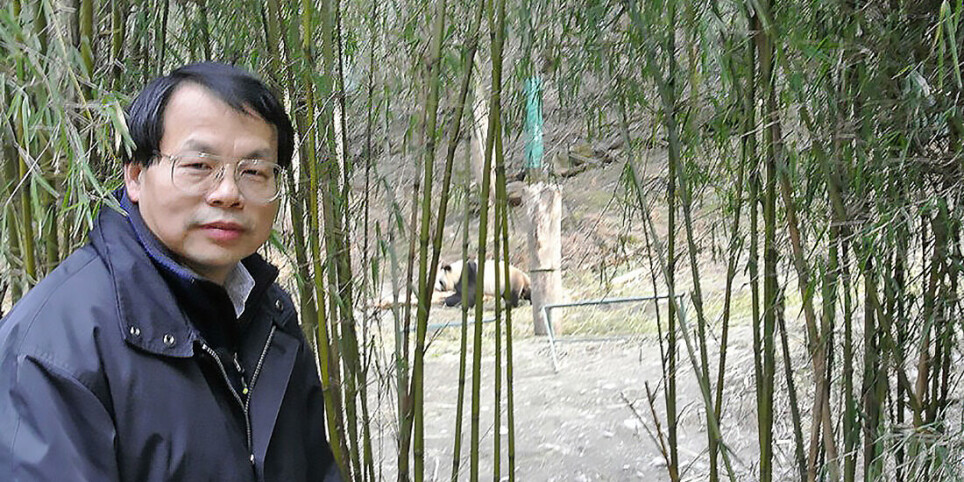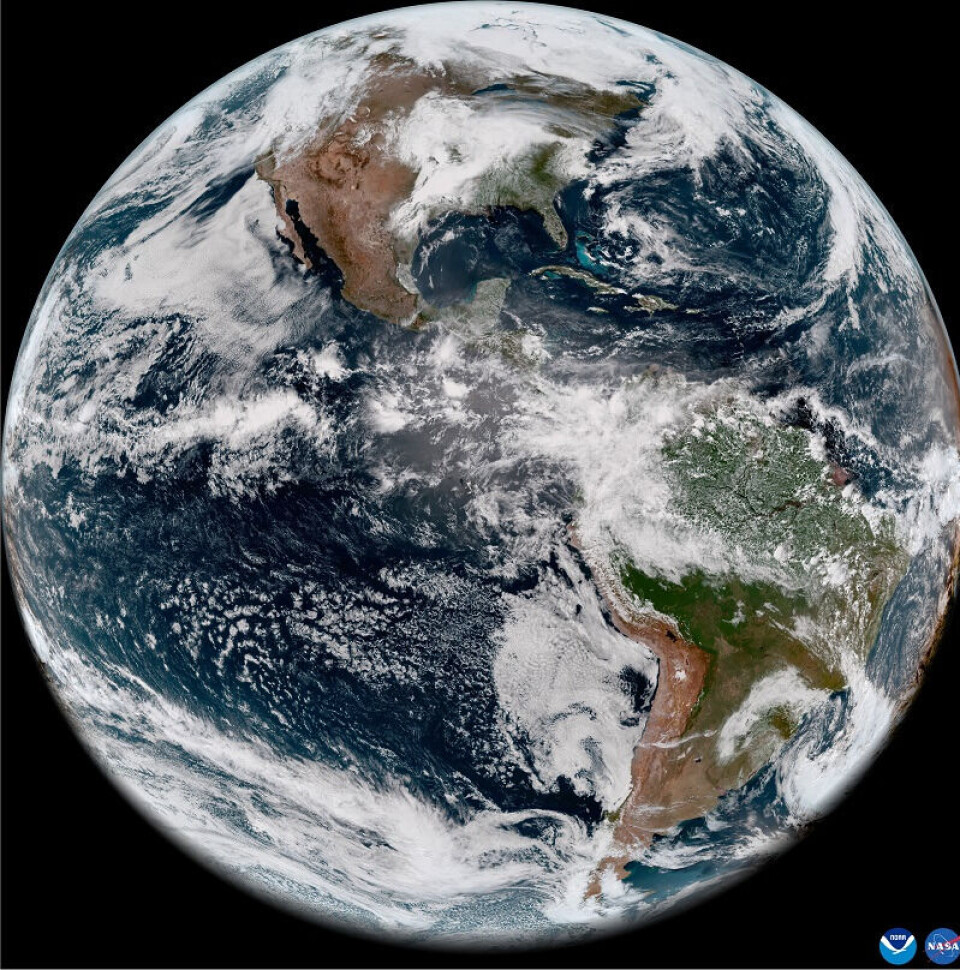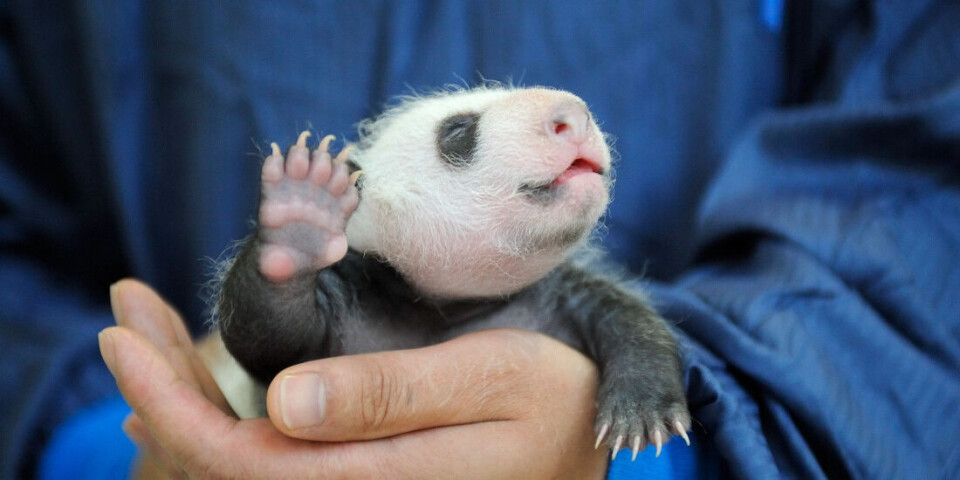THIS ARTICLE/PRESS RELEASE IS PAID FOR AND PRESENTED BY NTNU Norwegian University of Science and Technology - read more

Why there is still hope for our planet
Professor Jianguo Liu is the newest winner of The Gunnerus Award in Sustainability Science. He offers us some hope.
This year the world’s population will top 8 billion people. Nature faces massive challenges, mainly because humans consume more than the planet can handle.
At the same time, when we should be working together across borders to solve these challenges, humans are still quarreling over politics, religion, trade and territories, just as we have for millennia.
Is there hope? And if so, why?
Hope

“Yes, I think there is hope despite many global challenges,” Professor Jianguo Liu, who holds the Rachel Carson Chair in Sustainability at Michigan State University in the United States, says.
Liu is the winner of The Gunnerus Award in Sustainability Science for 2021. He will hold his prize lecture in NTNU’s main building today at 9AM.
The Gunnerus Sustainability Award is an international research prize with an honorarium of NOK 1 million. It is jointly awarded every other year by the Royal Norwegian Society of Sciences and Letters (DKNVS) and NTNU.
The award recognises outstanding scientific work in global sustainable development and aims to promote research and strengthen the scientific basis of sustainability.
Increased awareness of the challenges
“There are a number of reasons for hope,” Professor Liu says. “First, there is an increasing global awareness of challenges, especially among many young people. Of course, awareness alone is not sufficient, but it is an important first step.”
Professor Liu won for his outstanding work on social impacts, and environmental footprinting. He takes a holistic approach to complex challenges where people interact with the environment.
Crises increase awareness
“Second, there are more actions and initiatives addressing the challenges,” Liu says.
For example, at the global level, the United Nations has established Agenda 2030 for Sustainable Development and the UN Decade on Ecosystem Restoration. At the national and local levels, there are also numerous actions and initiatives around the world.
“Also, ironically, people tend to react to crises instead of taking proactive efforts to prevent crises. Hopefully as more crises are emerging, people will take more effective actions,” he says.

Positive outcomes already
“Third, some actions have resulted in positive outcomes,” Liu says.
For example, populations of giant pandas, a global wildlife icon, have been recovering.
“Its habitat has been transformed from long-term losses to gradual increases. It has been removed from the endangered species of the International Union for the Conservation of Nature (IUCN), or more specifically, its status has been upgraded from endangered to vulnerable,” he says.
Forests in many parts of the world have been increasing. Protected areas have also increased.
“These and other positive outcomes provide inspiration and hope for more actions that can in turn lead to more positive outcomes in the future,” Liu says.
How can we help?
So perhaps there is hope after all. But what can each of us do to help? And what can governments and organisations do?
“At the individual level, every one of us can do a lot. For example, we can initiate and take efforts to address various challenges. Many of us can vote for pro-environmental governmental officials and influence policy. We can live more environment-friendly lifestyles,” Liu says.
It might seem like a strange example, but one action is for people to avoid getting a divorce. Divorces cause environmental damage by increasing the number of households and reducing efficiency of resource use per capita. So, we should tough it out together if possible.
“What we buy and invest in can also shape the production of goods and environmental outcomes,” Liu says.
What others can do
Governments at different levels can do many important things – by developing, implementing, and reenforcing environmental laws and policies.
“They can also provide more incentives for environmental actions and punish bad environmental behaviours,” Liu says.
NGOs can lobby for environmental policies, monitor how effectively government policies are implemented, and promote environmental education.
News media and social media play important roles in disseminating environmental information to the general public.
Research is essential
“Researchers are essential to generate new knowledge and help find solutions to global challenges. For example, interdisciplinary research has discovered hidden 'telecoupling',” the Professor says.
Telecoupling is where environmental-socioeconomic interactions are linked, even though they are far from each other. This means that something happening in one place can affect people and the environment in other places far away.
“For example, in Norway and some other countries such as China, consuming soybeans and meat produced in Brazil can cause damage to tropical forests in Brazil. With globalisation and global environmental changes such as climate change, telecoupling has become more common and more influential,”Liu says. “Together, people and organisations around the world should take coordinated and collective actions to address telecoupling and other global challenges.”
So humans are the root of the problems, but humans might be able to solve them, too.
Read more content from NTNU:
-
Fish farming is least harmful to the seabed in the north
-
Study: Centralising hospitals has reduced birth mortality
-
Early testing of schoolchildren: “We found absolutely no effect”
-
This determines whether your income level rises or falls
-
Why is nothing being done about the destruction of nature?“We hand over the data, but then it stops there"
-
Researchers now know more about why quick clay is so unstable





































